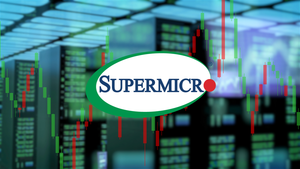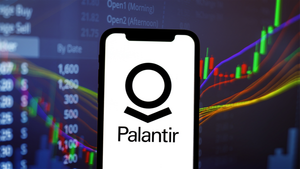
The world is rapidly shifting to the cloud, with businesses migrating critical data and operations to virtual environments. This shift, while transformative, has brought a wave of new security challenges. The cost of data breaches is projected to reach $10.5 trillion globally by 2025, highlighting the urgent need for cloud security solutions.
The global cloud security market is estimated to reach $170.8 billion by 2028. Cybercriminals constantly evolve tactics, deploying ransomware attacks and sophisticated phishing scams that pose significant threats to cloud environments. This combination of complexity and rising threats has spurred growth in the cloud security sector, creating opportunities for companies offering innovative solutions.
Two Titans: Zscaler and Palo Alto Networks
Two companies are leaders in this dynamic market: Zscaler and Palo Alto Networks. Both offer comprehensive solutions that address the challenges of securing data and applications in the cloud. However, they approach the market with distinct strategies, strengths, and weaknesses.
Zscaler: A Cloud-Native Security Leader
Zscaler (NASDAQ: ZS) is a cloud-native security company that has built its business around securing access to cloud-based applications. The company's core product, the Zero Trust Exchange platform, is designed to protect organizations from threats by verifying every user and device before granting access to applications.
The platform includes features like secure web gateways (SWG), data loss prevention (DLP), and user authentication, all delivered as a service.
This cloud-native approach allows Zscaler to deliver its solutions quickly and efficiently, scaling to meet the needs of even the largest enterprises.
Zscaler's financial performance has been impressive. In the fiscal fourth quarter of 2024, the company reported revenue of $592.9 million, representing a 30% year-over-year increase.
This growth trajectory reflects the strong demand for cloud security solutions, with Zscaler consistently exceeding analyst expectations.
The company's strong financial performance is supported by its analysts, who have given Zscaler a consensus price of $217.41, providing more than a 30% upside for the stock.
Palo Alto Networks: A Security Industry Heavyweight
Palo Alto Networks (NASDAQ: PANW) is a seasoned player in the cybersecurity sector, known for its comprehensive suite of network security, cloud security, and threat intelligence solutions. The company's Next-Generation Security platform is built on a foundation of advanced threat prevention and detection, utilizing technologies like artificial intelligence (AI) and machine learning to identify and neutralize even the most sophisticated attacks.
This platform encompasses a range of products and services designed to protect organizations from a variety of threats, including malware, ransomware, advanced persistent threats (APTs), and zero-day exploits.
Palo Alto Networks' financial performance reflects its strong market position. In the fiscal fourth quarter of 2024, the company reported revenue of $2.2 billion, a 12% year-over-year increase.
Notably, the company's Next-Generation Security Annual Recurring Revenue (ARR) grew by 43% to $4.2 billion.
This impressive growth in ARR indicates strong demand for Palo Alto Networks' innovative solutions, demonstrating the company's ability to capture a significant share of the growing cloud security market.
Analysts are optimistic about Palo Alto Networks' prospects, with the current consensus price target for the stock at $366.08 representing a potential upside of about 7%.
The Emerging Challengers
While Zscaler and Palo Alto Networks are dominant players, several other companies are making waves in the cloud security space, including:
- SentinelOne (NYSE: S): Leveraging AI with its Singularity XDR platform, SentinelOne offers comprehensive endpoint and cloud workload protection. This platform is designed for autonomous threat detection and response, reducing reliance on human intervention and streamlining security operations.
- Okta (NASDAQ: OKTA): Okta is a leader in identity and access management (IAM), a critical area of cloud security as organizations increasingly rely on cloud-based services. Okta's zero-trust network access solution verifies every user and device before granting access to resources, minimizing the risk of unauthorized access to sensitive data and applications.
- Cloudflare (NYSE: NET): Cloudflare's unique edge network and range of services, including DDoS protection, web application firewalls, and secure web gateways, provide a robust security solution. Its edge network allows for proactive threat protection closer to the user, improving performance and reducing latency.
- CyberArk Software (NASDAQ: CYBR): CyberArk focuses on privileged access management, a critical area of security often overlooked. The company's solutions protect sensitive credentials and accounts, mitigating insider threats and attacks targeting high-value assets.
A Cloud-First Approach vs. Enterprise Security
While both Zscaler and Palo Alto Networks are well-positioned to capitalize on the growth of the cloud security market, their approaches to this space diverge significantly, leading to distinct investment implications.
Zscaler has established itself as a leader in cloud-native security. Their Zero Trust Exchange platform provides a comprehensive security solution, delivered as a service, designed to secure access to cloud-based applications from any location. Zscaler’s financial performance reflects this focus, with impressive revenue growth and a consistent track record of exceeding analyst expectations. Their commitment to innovation and a business model built for agility allow Zscaler to rapidly scale operations and meet the evolving needs of their customers.
Palo Alto Networks, on the other hand, leverages its long-standing brand recognition and comprehensive suite of security solutions to dominate the enterprise security space. Their Next-Generation Security platform, which incorporates technologies like artificial intelligence and machine learning, offers protection against a wide range of threats across network security, cloud security, and threat intelligence. While Palo Alto Networks has a strong track record of growth, their more traditional approach to security may make them less agile in adapting to the rapid shift towards cloud-based services.
The critical difference between these two companies lies in their approach to the cloud security market. Zscaler is a true cloud-native company offering a service-based approach that aligns with the growing demand for cloud-based solutions. While still a strong player in the cloud security market, Palo Alto Networks maintains a more traditional approach, offering a more comprehensive range of products and services that cater to the enterprise security needs of organizations.
While both companies are strong contenders, Zscaler’s focus on cloud security positions it as a more compelling long-term investment opportunity. As the world increasingly relies on cloud services, Zscaler’s cloud-first approach gives it a significant advantage. Its strong financial performance, innovative technology, and agility in scaling its operations make it a leader in a market poised for continued growth. Investors looking to gain exposure to the cloud security market should consider adding Zscaler to their portfolios.





